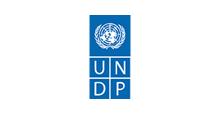
Edgar Taylor is a Lecturer in the Department of History, Archaeology and Heritage Studies at Makerere University. He holds a PhD in Anthropology and History from the University of Michigan, an MA in History from Makerere University and a BA in History and African Studies from the University of Toronto. His research examines urban protest, racial politics and institutional life in twentieth-century Uganda. He has published articles in the Journal of Eastern African Studies and Comparative Studies in Society and History on topics including the affective and legal politics of decolonization and racialized citizenship as well as the dynamics of public heritage in Uganda. He has also written about histories of archival management, including a forthcoming article on risk in archival labour. He is currently writing a book, Infrastructures of Exclusion: Authority and Everyday Politics in Urban Uganda, 1959-1972, about racial populism and urban governance in the years preceding the Ugandan Asian expulsion of 1972. He is also co-editing a collected volume for James Currey, Contesting Knowledge, Publics and Institutions in Uganda, and co-editing a special journal issue for History and Anthropology entitled Expulsions: Knowledge, Memory and Materiality in Africa. He has worked with colleagues in collaboration with the Uganda National Archives, the Uganda Museum and the Uganda Broadcasting Corporation to preserve archives and public heritage. His teaching experience ranges from surveys of African social history to global cultural histories of revolutions.
Expulsions are central to the way that states and scholars have understood African people, places and things in the twentieth century. Drawing on case studies of the expulsions of Indians and Kenyans from Uganda, this study analyses the relationship between expulsions and three fields within African Studies surrounding institutional knowledge, violence and memory and materiality. Combining social history and intellectual history, it provides a new lens into the conceptual and methodological constraints of area studies scholarship. The project offers a unique opportunity to situate historical research from postcolonial Uganda within debates over the trajectory of African Studies and knowledge production from African institutions.









